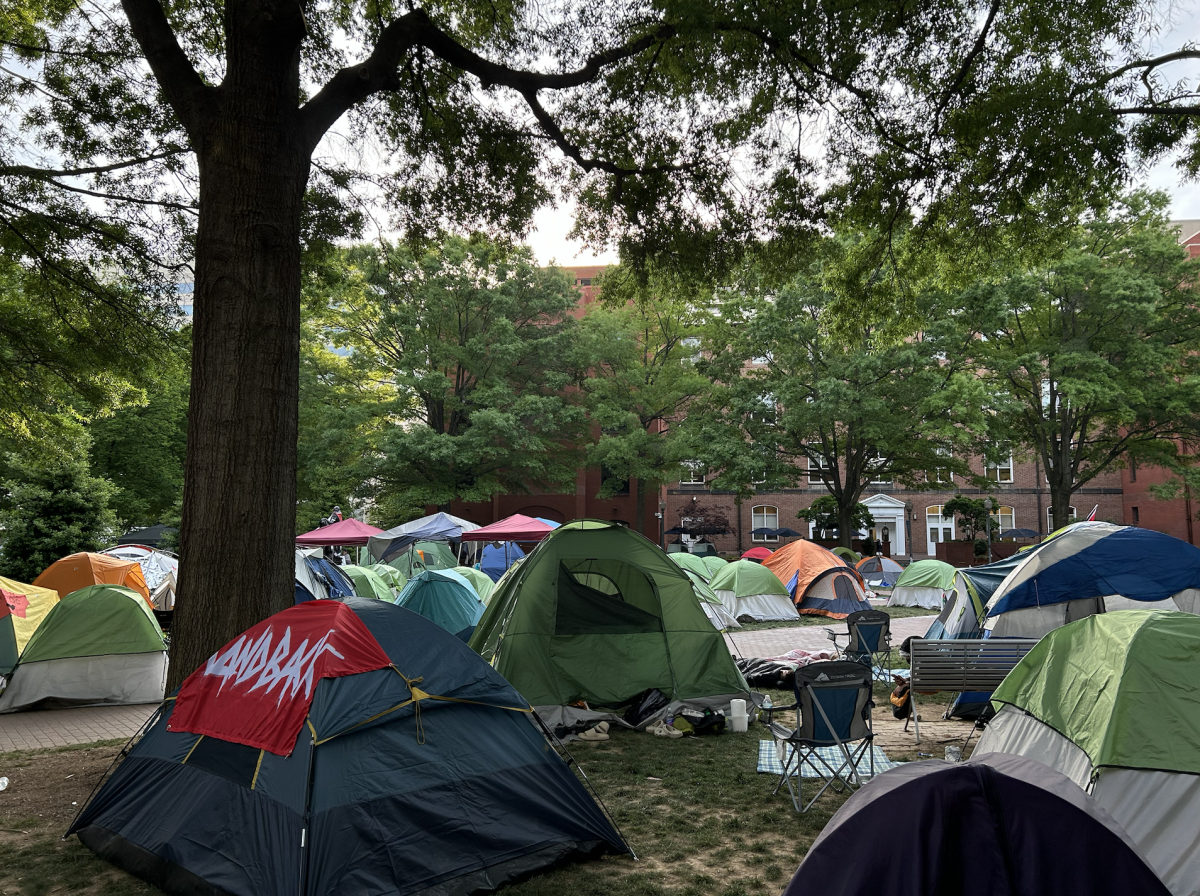Housekeeping and Elliott School officials offer different reasons why more than 250 confidential student files turned up in a recycling bin outside Francis Scott key Hall two weeks ago.
Tony Dillard, coordinating manager of facilities management, said three housekeeping employees picked up about 20 boxes of files from the Elliott School of International Affairs advising office Feb. 28. He said housekeeping refused to take some files because they were not properly boxed.
Dillard said the boxes that were picked up were taken to a compactor following GW guidelines and none of the employees put files in the FSK bin.
“I can’t see (housekeeping) taking out almost 20 boxes and taking them to the compactor and leaving behind four or five boxes,” Dillard said.
But Jim Fry, director of student services and advising for the Elliott School, said housekeeping officials took all confidential files Feb. 28, only leaving behind folded boxes with no files. He said the incident is a “perfect illustration” of mishandling by housekeeping.
“I will admit there is a problem,” he said. “But it’s not with this office or any other academic office.”
Fry said housekeeping picked up 18 boxes of non-confidential files.
“Everything was gone,” he said. “We handed all our stuff over to them.”
Dillard said the incident concerns him, adding that housekeeping followed all procedures correctly.
“We take pride in what we do, and I wanted to get to the bottom of this and make sure all procedures are followed,” he said.
The files, retrieved by The Hatchet after a student discovered them, included confidential personal information about students who had transferred from the Elliott School and teacher evaluation forms.
Advisers in the Columbian College of Arts and Sciences and School of Business and Pubic Management said they are examining how confidential files are disposed of following the March 7 Hatchet report.
Carrie Mallon Harris, director of the SBPM advising center said she will approach GW Associate Vice President for Academic Planning Craig Linebaugh to get a shredder for the business school.
While the Elliott School reports using GW Housekeeping Services to discard confidential material, Harris said GW began contracting with the Washington Archives and Storage company 10 years ago to dispose of sensitive student files. Files of graduated and withdrawn students are stored in the SBPM advising center for one year and then locked in a Monroe Hall file room for two years. The storage company keeps the files for storage at its facility, shredding them after five years, Harris said.
“I had always assumed that when those files were picked up that they were being shredded,” she said. “If the University is not having materials shredded as we thought they were, then we should do it ourselves.”
Harris said the business school labels confidential records “confidential trash,” when they are sent out, which she said indicates that they must be shredded. She said she did not doubt they were being shredded until reading The Hatchet article.
Marc Wittlif, office manager for the Columbian College advising office, said CCAS uses a system similar to SBPM. He was concerned about the improper disposal of confidential files.
“This incident has certainly heightened our awareness,” he said.
Columbian College undergraduate and graduate files are stored as long as students are active and then stored for five years by the Washington Archive and Storage Company. After five years, the company compiles the files on microfiche so the University can recall them.
Wittlif said the files are then destroyed at an off-campus location, but he did not know how. He called the Elliott School situation “unfortunate.”
“Social security numbers should never become public,” he said.
Fry said he has contacted other GW academic offices.
“We’re all going to have to buy shredders,” he said, “because what we thought was being done was not being done.”






